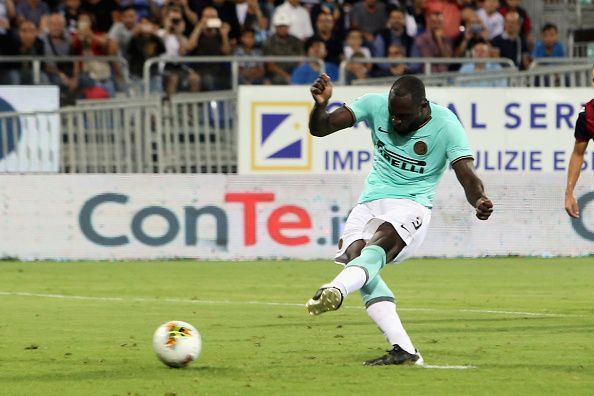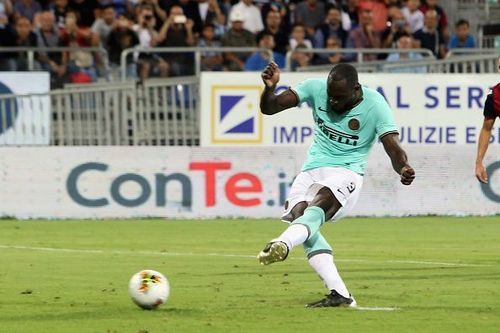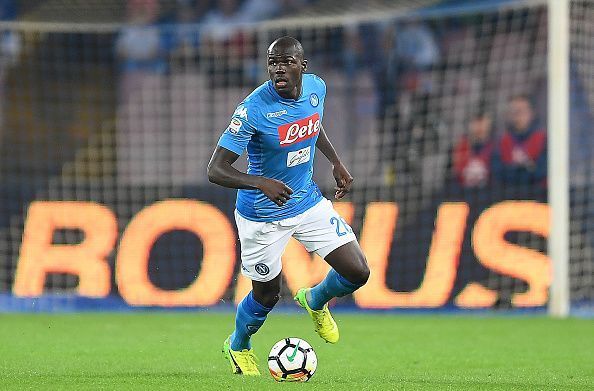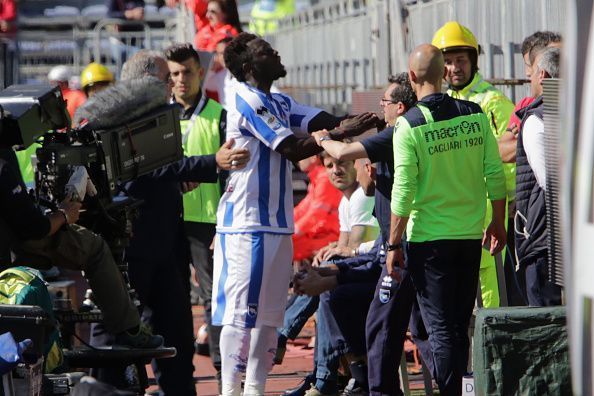
By overlooking racist behavior, the Italian Football Federation is digging its own grave

The vile and abhorrent slurs directed at Internazionale striker Romelu Lukaku during the forward's scoring celebrations away at Cagliari during the second match-week of Serie A highlights not only the endemic malady of racism which is prevalent in upper echelons of the so-called 'Ultras' (the most extreme of fanbases), but also exposes the ineptitude of the Italian Football Federation, FIGC, to take action against such fan organizations.
The most revolting development happened in the immediate aftermath of the incident, when representatives of the Curva Nord, the faction of the ultras who occupy the North Stand in the San Siro, issued a public statement. In that, they not only justified the treatment meted out to the player by the Cagliari fans, implying that fans resort to racist chants to unnerve opposition players, but also urged the player to stop attaching a racist label to the league.
The statement drew widespread condemnation against the club, and the FIGC claims that it will thoroughly investigate the matter and hand out sanctions accordingly. However, judging from the organization's past record in dealing with similar cases, such an outcome appears to be a distant possibility.
With recent events of racist abuse in England, especially in the case of major powers such as Chelsea and Manchester United having to witness their fans abusing home and away players alike, the response by both teams was anything but feckless.
Chelsea took prompt action in identifying and indefinitely banning fans who hurled out racial slurs at Raheem Sterling in a fixture against Manchester City last December. More recently the London club, in conjunction with Manchester United, have been attempting to schedule a meeting with Twitter in a bid to pressure the company to impose stricter policies and curb the use of the social networking site by fans to direct racial abuse against players, as was seen in the case of both Paul Pogba and Tammy Abraham.
Similarly, Spanish side Valencia also launched an extensive investigation to identify fascist supporters who aimed a barrage of objectionable slurs against Arsenal supporters and players in their Europa League semifinal tie this year. The result of the investigation remains guarded, but the quick approach taken by the representatives of prime football institutions on the continent goes a long way in strongly discouraging such behavior.

The recent stance by the FIGC continues a pattern of light sanctions placed by them on culpable parties in recent cases of racist abuse. Kalidou Koulibaly was subjected to racist chants during Internazionale's 1-0 victory over Napoli last year. The team was ordered to play two matches behind closed doors, and the third with one section of the stadium, occupied by the ultras, closed down.
No action was taken individually against any chanter despite video evidence to the contrary. The abuse was so vocal that Carlo Ancelotti, the Napoli manager, asked the referee to stop the games. But the official, shackled by inconsiderate laws, only communicated futile warnings to the crowd.
The most astounding of all association reactions was the FIGC's public statement after its investigations on the racist abuse suffered by Juventus players Moise Kean and Blaise Matuidi in their contest against Cagliari last year. The Sardinian club, it seems, has a penchant for fostering and condoning racist behavior.
There was no preliminary investigation by the club in the first place, and when mounting pressure forced the FIGC to take action, they did so in the most languid manner, ultimately exonerating the accused party on account of what they perceived as chants having "objectively limited relevance".
This is the questionable administrative structure of one of Europe's premier football competitions. The FIGC is a representative institution that banned racist abuse victim Sulley Muntari for one match when he walked off the pitch after telling the referee that he was being abused. Instead of getting some relief, he was subjected to the humiliation of a yellow card. The culpable party, in this case, was again Cagliari.

The reason given for the lack of sanctions by the FIGC was an external association prerogative which dictates that if the amount of individuals party to the illegal activity are not in excess of the required number, which is 10, then the situation is insufficient to warrant any sanction under the league's rules. The inability of the FIGC to punish a club that is a habitual repeat offender is telling of its ostensible unwillingness to rectify such a serious issue in the country's most-watched sport.
Repeated instances of racist behavior, particularly in the major derbies such as those between the Roman clubs and between ideologically opposed teams from the North and South of the country, give rise to a vile and coarse culture which revels in bigotry and violence.
The political and historical significance that these 'ultra' organizations hold is indubitable. The influence of such extremist organizations has no place in football, yet the FIGC has allowed the culture to flourish, even in an age where their Iberian, English and French counterparts have evolved.
The inability of the FA to impose stricter sanctions on individuals and their organizations, coupled with their lackadaisical approach to amend rigid and base association laws, sends a disturbing message to all kinds of supporters around the globe: that such extremist organizations are well within their influence to intimidate officially created associations and to flout their laws. That would make association members either afraid to take action under bowed pressure from these organizations, or willing to foster racist behavior themselves.
Whatever the case may be, one thing is abundantly clear - that the FIGC are deliberately ignoring such behavior. By doing that they have started to dig their own well, a process that will likely end with a complete upheaval of their structure or taint their image and that of their league with a racist label.